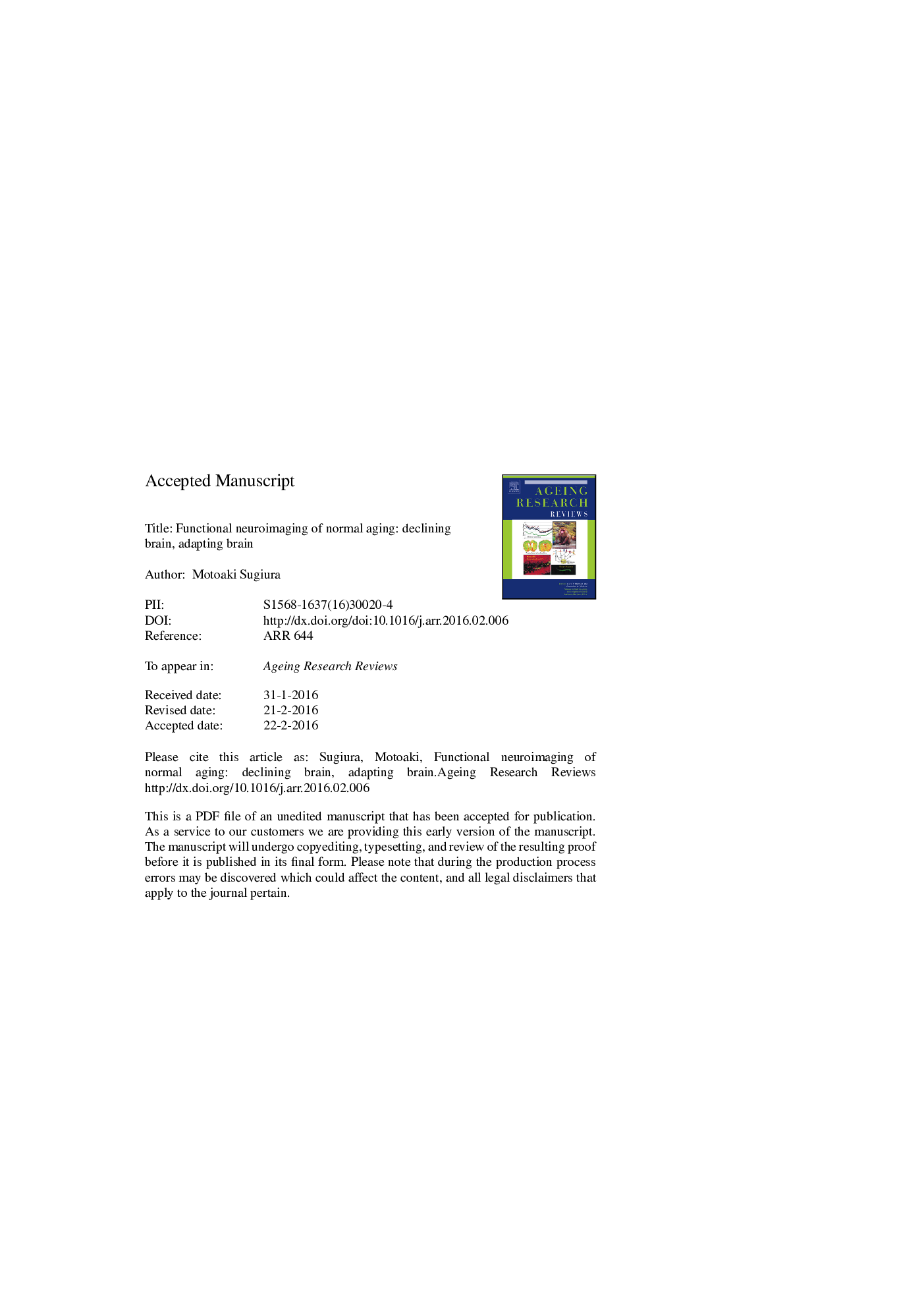| Article ID | Journal | Published Year | Pages | File Type |
|---|---|---|---|---|
| 5500677 | Ageing Research Reviews | 2016 | 55 Pages |
Abstract
Early functional neuroimaging research on normal aging brain has been dominated by the interest in cognitive decline. In this framework the age-related compensatory recruitment of prefrontal cortex, in terms of executive system or reduced lateralization, has been established. Further details on these compensatory mechanisms and the findings reflecting cognitive decline, however, remain the matter of intensive investigations. Studies in another framework where age-related neural alteration is considered adaptation to the environmental change are recently burgeoning and appear largely categorized into three domains. The age-related increase in activation of the sensorimotor network may reflect the alteration of the peripheral sensorimotor systems. The increased susceptibility of the network for the mental-state inference to the socioemotional significance may be explained by the age-related motivational shift due to the altered social perception. The age-related change in activation of the self-referential network may be relevant to the focused positive self-concept of elderly driven by a similar motivational shift. Across the domains, the concept of the self and internal model may provide the theoretical bases of this adaptation framework. These two frameworks complement each other to provide a comprehensive view of the normal aging brain.
Related Topics
Life Sciences
Biochemistry, Genetics and Molecular Biology
Ageing
Authors
Motoaki Sugiura,
